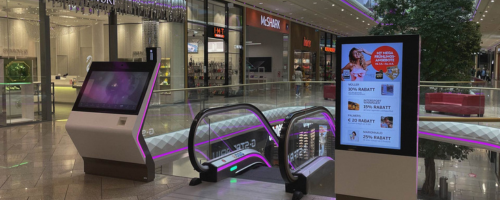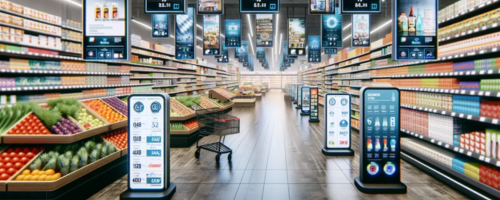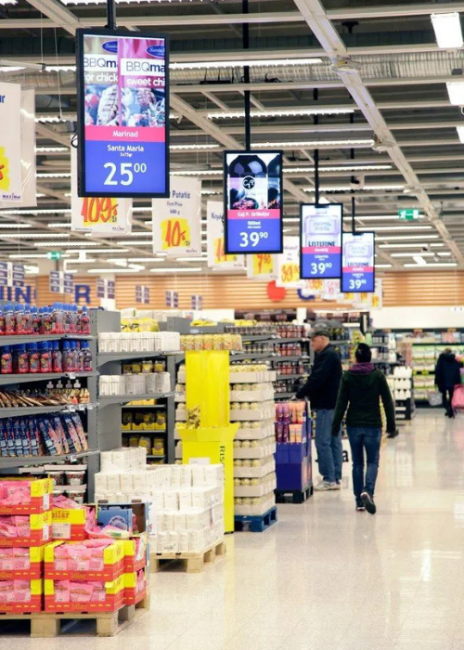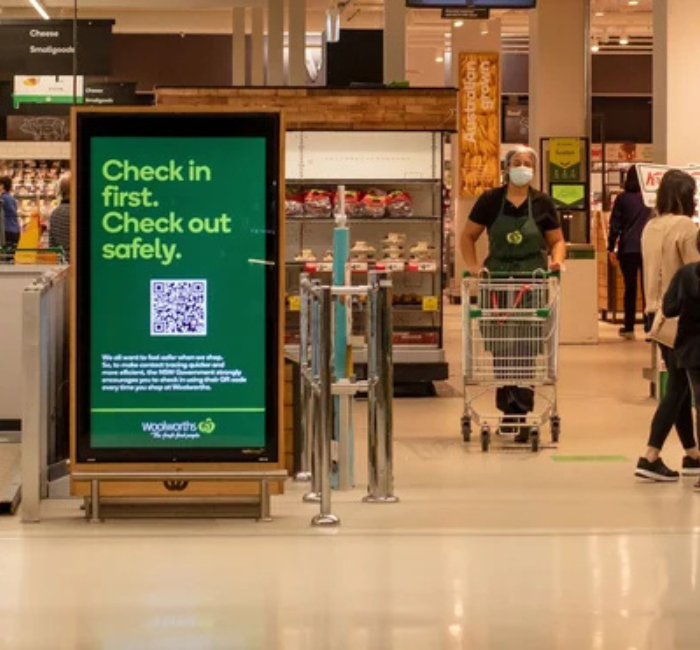Retail Digital Signage in Canada
Retail Digital Signage in Canada – Driving Sales & Customer Engagement
Retail in Canada is evolving faster than ever. With e-commerce competition rising, physical stores must deliver engaging, personalized experiences to keep customers coming back. One of the most effective tools is retail digital signage – turning storefronts, aisles, and checkout areas into interactive sales and branding channels.
A 2024 Deloitte Canada retail study revealed that digital signage increases in-store sales by up to 29.5%, while 47% of Canadian shoppers report noticing and engaging with in-store displays more than posters or static signage.
Why Retailers Need Digital Signage
The Challenge
Canadian retailers face shrinking attention spans, competitive discounting, and the need to create memorable in-store experiences. Static posters cannot adapt to changing promotions or customer expectations.


The Solution
Digital signage provides real-time, dynamic content that attracts attention, boosts impulse buying, and improves brand recall. From Toronto shopping malls to local boutiques in Vancouver, retailers are using signage to stand out and convert foot traffic into revenue.
Benefits of Digital Signage for Retail
-
Boost Impulse Purchases
Shoppers are 19% more likely to make unplanned purchases when exposed to engaging digital displays (Retail Insider Canada, 2024).
-
Highlight Promotions & Discounts
Update offers instantly across all stores nationwide, saving time and print costs.
-
Enhance Storefront Appeal
Eye-catching window displays attract more walk-ins, increasing traffic by 22%.
-
Upsell & Cross-Sell Products
Show complementary items near checkout or product aisles.
-
Interactive Shopping
Kiosks allow customers to browse extended catalogs, product details, and loyalty rewards.
-
Reduce Printing Costs
Retailers save up to 35% annually by replacing posters with digital signage.

Types of Retail Signage Solutions
Video Walls – Showcase seasonal campaigns in malls and flagship stores.
Digital Menu & Promo Boards – Perfect for grocery, QSR, and convenience retail.
Aisle-End Displays – Trigger impulse buys with dynamic offers.
Interactive Kiosks – Product catalogs, size checkers, and inventory lookups.
Point-of-Sale Screens – Encourage loyalty program sign-ups or last-minute add-ons.
Storefront LED Displays – Capture street traffic with high-visibility content.
Storyline – A Canadian Retail Case Study
In 2024, a major retail chain in Ontario adopted digital signage across 200 locations. The results:
29.5% increase in sales of promoted products
18% reduction in printed marketing costs
22% increase in foot traffic due to storefront displays
Improved brand perception and recall, especially among Gen Z shoppers
This success story highlights how retail signage directly drives measurable KPIs in Canada’s competitive market.

Message from the CEO
In retail, every second of customer attention counts. Digital signage turns a simple shopping trip into a memorable experience. Our mission is to help Canadian retailers convert walk-ins into loyal buyers with dynamic, scalable, and cost-effective signage solutions.
Latest 2025 Trends in Retail Digital Signage
-
AI-Personalized Shopping
Retailers in Toronto and Vancouver are piloting AI-driven signage that adjusts promotions based on store traffic, time of day, and even weather. Sales lifts of 17% were reported in 2025 trials (Retail Council of Canada).
-
Omnichannel Integration
Retail signage now integrates with e-commerce platforms – showing QR codes for online ordering when in-store items are out of stock.
-
Interactive & AR Signage
Augmented reality mirrors and kiosks let shoppers “try before they buy.” Adoption rose 33% across Canadian fashion retailers between 2023–2025.
-
Sustainability & ESG Goals
Canadian retailers are embracing digital signage to cut down on print waste, helping meet ESG targets and reduce carbon footprints by up to 25%.

